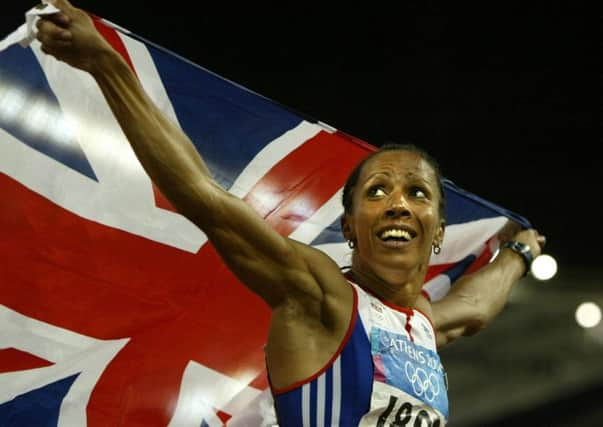Olympian Dame Kelly Holmes tells of battle against depression


Double Gold winner, record breaker, former Army sergeant, and role model. Months before this picture was taken, at the peak of her career, she was battling depression.
She would self harm every day. Nobody knew; she didn’t want to be ‘weak’. To give away any snippet of information which could be used against her in the arena.
Advertisement
Hide AdAdvertisement
Hide AdShe held on to that turmoil. The weight on her shoulders, and the pressure to perform, meant she was screaming inside.
“I got depression badly in 2003,” she said. “When you’re an ‘elite’ performer, or in a high pressure situation, there’s a personal pressure. It takes its toll.
“You’re pushing your body to the extreme. You’re going into an environment where every tenth of a second counts.
“It’s a roller coaster - the highs of wins and medals, and the lows of injuries.
Advertisement
Hide AdAdvertisement
Hide Ad“You go to physiotherapy to treat your injuries, but you’re never asked how you feel. You keep it in, in turmoil.”
Dame Kelly, 48, born and brought up in Kent, had joined the Army at 18. In the forces, and then in sport she says, there was always a rigidity, a structure, to what was expected of her.
When she faced injury, it sparked a deep fear inside. To face losing that structure, that sense of identity, had left her vulnerable.
“I just broke down,” she said. “Depression, self harm. Nobody knew about it, I didn’t want to talk about it. I didn’t want to seem weak.
Advertisement
Hide AdAdvertisement
Hide Ad“Then you live with the consequences - what’s happened to me? How do I get out of this?
“I was at the peak of my career. I was in emotional turmoil. But at the end of the day, we’re human. With stress, and pressures, there’s sometimes a reaction. It happens.
“Some things are quite traumatic, and can send you into the world of the unknown. My mother passed away last August, and I was a complete state.
“People need to talk, and they need to be listened to.
“We can all talk about it. We need to get to the point where it’s OK to say you’re not OK.”
Advertisement
Hide AdAdvertisement
Hide AdDame Kelly, who retired in 2005, went on to form the Dame Kelly Holmes Trust, supporting young athletes and disadvantaged young people from across the UK.
Here, she says, she hears too many tales of young people, particularly girls, struggling every day.
“I have a big concern about young people, and the support they may or not get,” she said.
“Recently, there’s been a huge rise in young people coming out about their issues, about suicidal thoughts, eating disorders.
“They are getting younger and younger.
Advertisement
Hide AdAdvertisement
Hide Ad“The question is, what is being done about it? Schools will have a massive part to play. In with the pressures to reach academic achievement, there is not enough thinking about their emotional wellbeing.
“If you’re talking about stigma, who can they talk to that isn’t going to judge, that isn’t going to make them feel intimidated?”
Research suggests 50 per cent of mental health problems are established by the age of 14, she said, while 25 per cent of 14-year-olds are said to be clinically depressed.
“There’s something seriously wrong here,” she said. “There are so many pressures for young people. Social media, brilliant in many ways, can be dangerous.
Advertisement
Hide AdAdvertisement
Hide Ad“Young people feel under pressure to be somewhere, to achieve, to be popular.
“We know the spectrum can be anything from stress, anxiety, depression, or self harm, right up to clinical depression. We need to look at services in a more holistic approach to support.”